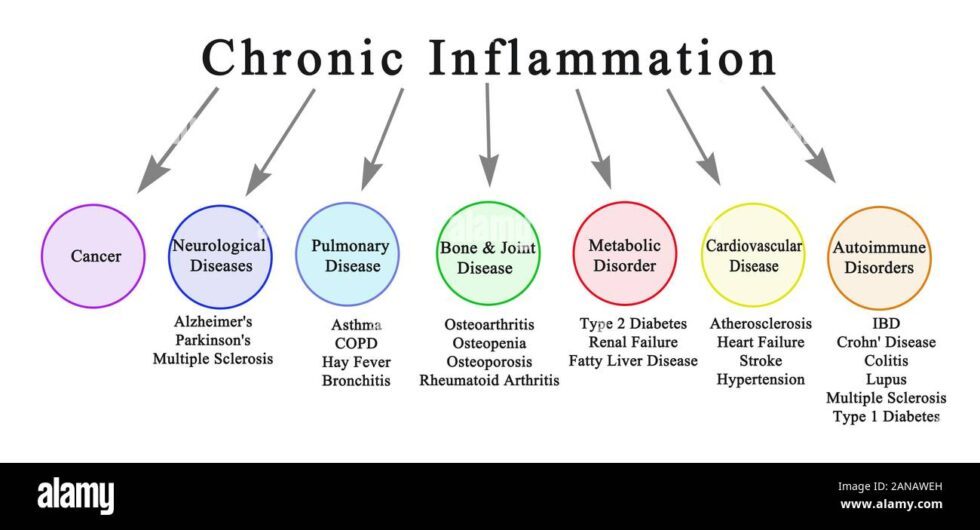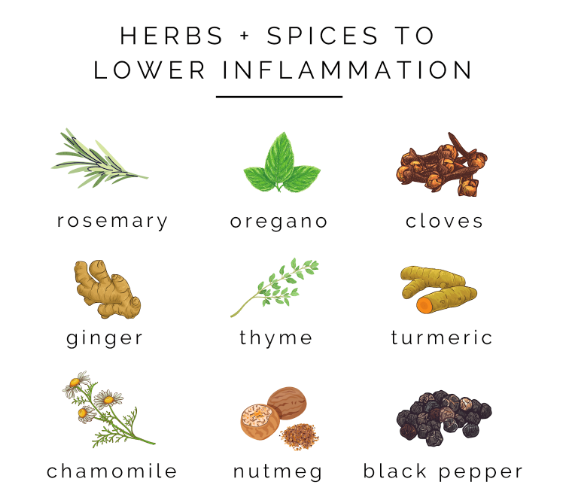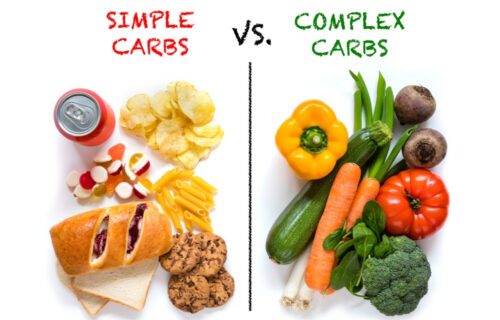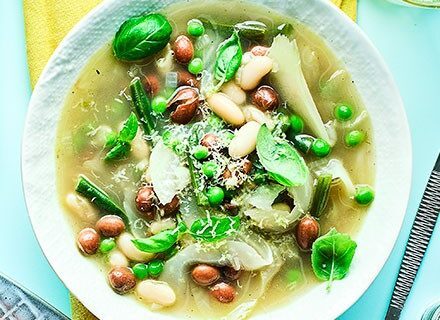
How to Reduce Inflammation Fast (and Help Your Hormones, Too)
What I want to cover:
- The difference between healing and chronic inflammation
- Symptoms of acute and chronic inflammation: includes belly fat, chronic pain, autoimmunity, allergies, and more
- What causes inflammation: includes stress, dairy, coffee, alcohol and more
- Ways to reduce inflammation: includes resistant starch, green leafy veggies, certain herbs and spices, and reducing your stress, and more
- Supplement recommendation for reducing inflammation
What is Inflammation?
Inflammation is your immune system’s response to stress or injury in or to the body. Those traumas may come in different forms, physical (bone fracture, burn, rash), dietary (processed food, fried food, sugar, allergenic foods), and environmental (mold, metal toxicity, chemical-laden cleaning, and personal care products, etc).
Inflammation is the first step in the healing process. When cells are damaged, they send out chemical messengers that cause swelling, which isolates the offending substance and keeps it from penetrating more cells. The chemical messengers also call white blood cells to the site of injury to get rid of bacteria and dead or damaged cells. The resulting product is ‘pus’.
Inflammation as part of healing is a good thing. It’s when it develops into chronic inflammation that there’s a problem.
Signs of Inflammation
The “textbook” signs of inflammation are redness, heat, swelling, pain, and loss of function that occur at the site of the injury. Some common examples where you can actually see and experience the five cardinal signs might be sunburn, stepping on a nail, or bumping your head and getting a “egg.”
Chronic inflammation isn’t always as noticeable as the acute inflammation mentioned above. Chronic pain may get your attention — which is the whole idea behind inflammation (so you protect the injured area) – but inflamed blood vessels might not.
Chronic inflammation may silently persist while it causes downstream effects, and may show up in the body as one or more of the following:
- Belly Fat
- Weight gain
- Chronic pain
- Accelerated aging
- Hormonal problems, especially insulin resistance
- Autoimmunity, including Hashimoto’s
- Allergies
- Chronic pain conditions
- Digestive problems: IBS, Inflammatory Bowel Disease, etc
- Cardiovascular disease
- Neurodegenerative diseases
- Blood test: CRP-hs (C-Reactive Protein highly sensitive) higher than 3.00 mg/L (although ideally, it should be no more than 1 mg/L)
- Elevated blood sugar levels (HA1C, fasting glucose or insulin)
- Many more
Functional medicine practitioners today are of the opinion that inflammation is the root cause of most chronic disease.
What Causes Inflammation?
There are a number of dietary and lifestyle choices that can cause inflammation. One of the primary ways we create inflammation through our lifestyle is stress.
Stress raises key inflammatory messengers in our bodies, called inflammatory cytokines. There is a direct correlation between the perceived stress in our lives and the levels of these inflammatory molecules. Interleukin-6 and TNF-alpha are a couple of those inflammatory markers. Interleukin-6 particularly raises your levels of C-reactive protein, a marker commonly tested to check your inflammation level.
Inflammation partly explains why women who are perpetually stressed are having a really hard time losing weight.
Diet is another main contributor. Foods can either cause inflammation or help reduce inflammation – and some foods cause inflammation in some people, but not others.
Foods that generally cause inflammation include:
- Sugar – including fructose (study)
- Artificial sweeteners
- Processed foods of all kinds
- Fried foods
- Wheat + gluten
- Dairy
- Too much meat, especially raised in cages
- Refined, high omega 6 oils
- Trans fats
- Excessive alcohol
- Coffee
- Foods specific to you (food allergies, histamine intolerance, lectin sensitivity, thiol sensitivity, salicylate intolerance, oxalate intolerance… etc.)
Nutrient deficiencies or imbalances, such as an altered omega-6 to omega-3 ratio, and inadequate intake of vitamins and minerals may also tip the scale toward an inflammatory state.
When otherwise healthy foods become inflammatory, it’s because your immune system has become overactive and imbalanced. To rebalance the immune system, it’s important to address the microbiome. Resistant starch can help restore your microbiome, balance your hormones, and lower your inflammation.
Lack of sleep has been shown in research to raise levels of inflammatory markers in the body.
Toxicity from environmental and lifestyle factors can also raise your body’s inflammation. The body sees these foreign substances as poisons and sets off an immune response, raising inflammation.
Smoking counts as another source of toxicity and can also contribute to chronic inflammation.
Ways to Reduce Inflammation
First, lower your toxic load by eliminating those dangerous household, outdoor, and personal care products. Detox your home and find healthy replacements. Quit smoking. You might even consider doing a detox program on yourself.
However, one of the easiest, most straight-forward strategies you can follow is to get rid of inflammatory foods and add in more whole foods.
Some foods that are known to reduce inflammation include:
- Resistant Starch
- Green leafy vegetables (study)
- Olive oil and other healthy fats
- Fatty fish, like wild caught salmon (rich in omega 3s)
- Richly colored berries (study) and cherries (study)
- Green tea
Reducing your stress levels will undoubtedly help in lowering your inflammation levels. Some good ways to reduce stress-induced inflammation include:
Sleep – Getting a good night’s sleep is vital for lowering your stress and inflammation levels and getting you back on the path to healing. Here are some tips for sleep strategies to get you started.
Certain herbs and spices can also help lower inflammation, such as rosemary, oregano, thyme, chamomile, ginger, nutmeg, cloves, black pepper, and turmeric. Try to incorporate fresh herbs and spices into your diet whenever you can. Not only will your food taste spectacular, but your body will thank you, too!

If you can find a way to add them to your diet, please do!
Sometimes it can be difficult to get in all those spices on a regular basis. To create consistency, that’s where a supplement can help.
Anti-inflammatory Supplement I Recommend
Curcumin the active ingredient found in turmeric – there are 3 curcuminoids (curcumin, demethoxycurcumin, bisdemethoxycurcumin).
Be aware of cheap imitations. The patented extraction technology is called BCM-95 has clinically shown to be more efficacious as compared to other forms of turmeric, including formulas that include pepper.
How Curcumin can help your hormones:
- Benefits the entire endocrine system; production and metabolism of the hormones
- Upregulates cells for better uptake of hormones
- Can reduce hot flashes
- May reduce symptoms of Estrogen Dominance
- Can help optimize conversion of T4 to T3 thyroid hormones
- Aids liver detoxification (so crucial in
How Curcumina can support your overall health:
- Provides antioxidant and cell-protective activity
- Supports joint health and helps relieve minor pain
- Supports the immune system by modulating the production of cytokines
- Supports brain/neuronal health and a healthy mood
- Supports a healthy microbial environment
Resources
- https://www.ncbi.nlm.nih.gov/pmc/articles/PMC3548567
- https://medlineplus.gov/ency/article/000821.htm
- https://www.ncbi.nlm.nih.gov/pmc/articles/PMC5476783
- https://www.frontiersin.org/articles/10.3389/fimmu.2018.00754/full
- https://www.ncbi.nlm.nih.gov/pubmed/21807932
- https://www.ncbi.nlm.nih.gov/pmc/articles/PMC3350341/
- https://academic.oup.com/ajcn/article/81/2/341/4607411
- https://www.ncbi.nlm.nih.gov/pmc/articles/PMC3601579/
- https://www.ncbi.nlm.nih.gov/pmc/articles/PMC5872786/
- https://www.ncbi.nlm.nih.gov/pmc/articles/PMC3261116/
- https://www.ncbi.nlm.nih.gov/pmc/articles/PMC4851883/
- https://www.choprafoundation.org/education-research/past-studies/gratitude-study/
- https://www.ncbi.nlm.nih.gov/pmc/articles/PMC3011108/



